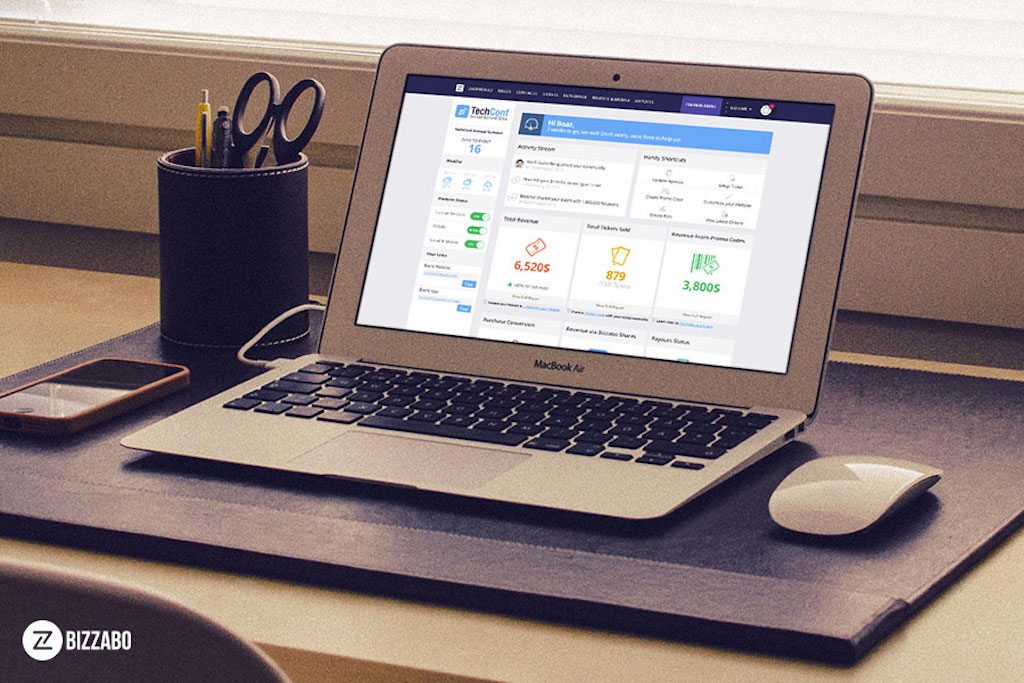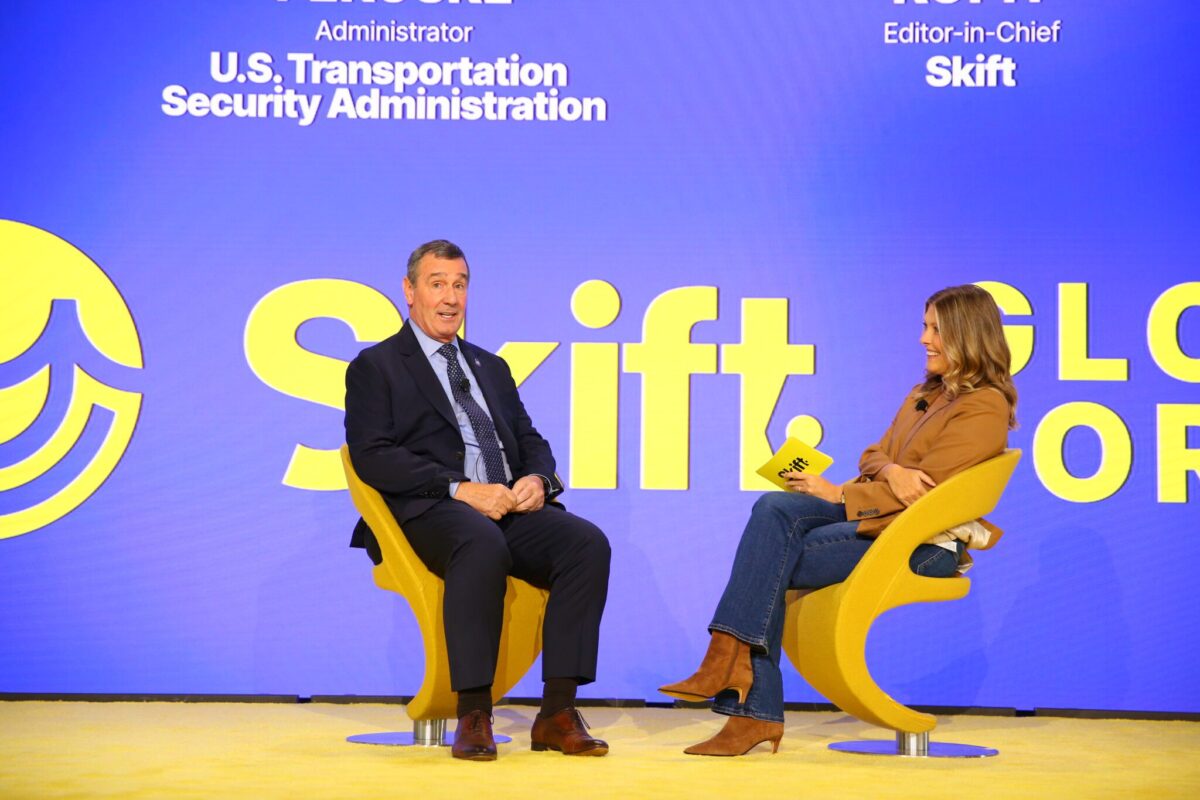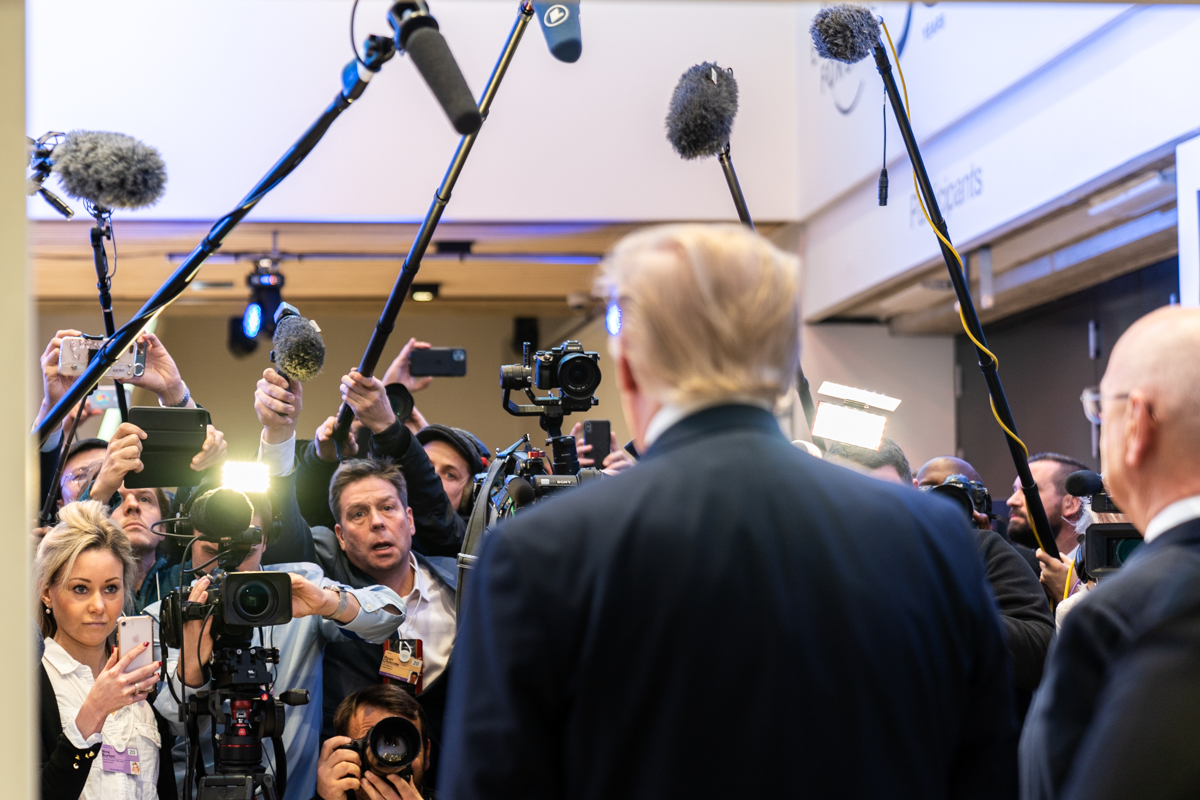How Smart Event Organizers Are Using Big Data to Create Better Events

Skift Take
When the First Continental Congress convened in Philadelphia in 1774, simply knowing that 12 of the 13 colonies were sending delegates was likely more than enough to count as attendee data.
Today's meeting planners, however, need more data than just how many people are coming to put on a relevant event for attendees and make money for conference producers. Technology from social media platforms like Facebook and Twitter, as well as websites and apps from companies like Bizzabo, Cvent, Eventbase, and Eventbrite are filling in those knowledge gaps.
Getting a More Holistic View of the Event
Emily Fullmer, global events manager at Greenbook, finds that the data she collects from Bizzabo, the technology vendor she selected for Greenbook's IIeX North America conference, "has been immensely impactful in how we make our decisions" and gives her a more comprehensive overview of how her events are performing, benefiting her sales and marketing departments at the same time.
Fullmer said, "As an event planner, I can see, in real time, revenue numbers from a certain promotion on site, how many people have checked in. When you need something at your fingertips immediately, the data is always there at the time we need it."
"We strongly believe that data is power," said Bizzabo co-founder, CMO, and COO Alon Alroy. The company works with corporations, publishers, marketing agencies, associations and third-party planners to "help people create a better website, to promote their event via email and social media, maximize participation, and maximize engagement." Its technology also integrates easily with Linkedin, MailChimp, and Salesforce among others.
With the help of modern technology platforms like Bizzabo and others, event organizers can easily access and analyze data to make data-driven decisions that have a direct impact on the success of their events, whether they're looking to "improve registration rates, enhance attendee experience, and provide noticeable ROI to other business units like sales or marketing," Alroy explained.
Greenbook added the global conference IIeX, the Insight Innovation Exchange, five years ago, to its series of annual events and webinars which attract anywhere from 100 to 1,000 people per event.
"Bizzabo made the most sense from a user experience and logistics that met the needs of our sales team and marketing team and production," said Fullmer. She explained that Greenbook, using Bizzabo technology, limits the amount of data collected during the registration process to make it as simple as possible. "Then everyone receives a confirmation email that triggers them to sign up for the community of attendees," she said. "Then I rely on Bizzabo to tell us more about them. We can see what parts of the mobile app are being utilized, what facets of the event are most interesting to attendees, without asking them specifically."
She highlighted notable Bizzabo features that tell her how a campaign is performing and with up to 150 speakers at an event, she can easily tell which speakers are generating the most interest based on engagement.
"Our marketing team loves the Ticket Boost functionality," she added. "It allows them to see that … in a tight-knit market research community, which ones are making a difference." She added, "If a platform neglects logistics it is a complete headache for an event organizer. But Bizzabo manages logistics and also marketing, while marketing is lost on other platforms."
Ticket Boost acts as a referrals/reward system and Alroy described it as being modeled after "how Uber and Airbnb were able to turn users into advocates. When people purchase a ticket to an event, we incentivize them to share on social media and provide a discount and share that data with marketers."
Choosing Speakers, More Effective Marketing and Registration
Scott Ehrlich, COO of DTC Perspectives, whose company produces the Hospital Marketing National Conference among others, uses data to know which speaker to feature in his event's e-marketing blasts.
DTC Perspectives uses a combination of Cvent, Infusionsoft, Constant Contact, and its own internal website marketing tool for its annual conferences, the DTC National Conference, the Hospital Marketing National Conference and the DTC Forum on TV and Print/DTC Agency Vanguard Awards.
Ehrlich and John Woodbridge, DTC Perspectives' director of business development and marketing said what they like, what they don't and what they wish for.
"Cvent gives us conference marketing, registration and agenda in one fairly simple-to-use tool," said Erlich. "Cvent is very plug and play."
"Although what we do a lot of is revenue from conference registrations, a larger part of what we need software for is marketing and running transactions, processing things that aren't a conference pass," Woodbridge explained.
DTC sells sponsorships, reprints, advertising and list access "under an umbrella of 12 things that can be implemented at the conference," said Woodridge. "One of the limitations of Cvent is that we can't process a one-off transaction," said Woodbridge. "Let's say they purchase 'early list access'. With Cvent they would have to buy it as a pass and then we use our own system to know they are not a conference attendee."
Woodbridge cited two reports which he finds very useful: the Registrant Extract report, which he primarily uses for benchmarking to project how a conference will turn out, and the Abandon Registrations list. With that report, he said, "We email them, and send them a personal note saying, 'I noticed you started to register and you dropped out. Is there anything we can do?'"
"Getting the info out of a report is great," he said, "but timeliness is important to that sale. It would be nice to get an instant notification so I can call them." Woodbridge often calls these "abandoned shopping cart" attendees to ask them why they didn't register. Before the conference, he uses the list to find out what it will take to get them to register, and gives that to them, offering a discount when appropriate.
The combination of tech products and data available to DTC provides Woodbridge with a picture of "one person's interaction and everyone as a whole." "You can see, for example, that someone came to your website four times in the last month, they opened their email, they clicked that tweet and the sale was made through that tweet," Woodbridge said.
Armed with survey data from attendees, Woodbridge said he finds it to be the most valuable information to use, and to harness into face-to-face meetings and interactions. "I've been on the phone with a handful of kind and generous marketers [conference attendees] getting feedback from them," he said. I fly up and schedule trips simply to meet with people, to meet with them one on one and help serve them better. Hearing it directly from them, is the best way to do it."
DTC doesn't utilize Bizzabo's suite of tech products, but Bizzabo's Alroy said the company's Hot Leads retargeting product also helps organizers reach out to attendees who may have had a case of cold feet.
"Sometimes people start the registration process but don't complete it," he explained. "We capture their information and we provide the organizer with a list. Then we send them an email [saying] 'I saw you started to register. Here is a discount,'" Alroy said. He compared Hot Leads to what happens with Amazon, when "you are looking at a pair of shoes and then you see shoe ads chasing you all over the Internet."
Building Better Relationships with Sponsors, Getting to Know Attendees
Amanda Gottlieb, senior marketing manager at Working Mother Media uses Cvent software for its conferences, which include the WorkBeyond Summit, NAFE Top Companies for Executive Women, the Multicultural Women's National Conference, the Global Women of Advancement Conference, Best Law Firms for Women Gala Awards Luncheon and Career Accelerator Summit, Men As Allies and Global Advancement of Women Conference.
"We collect basic attendee contact information as well as ask them if they want to opt in to our emails and how they heard about our event," she said. "We also ask for dietary requirements, gender, ethnicity, job level, company size, industry type, and we ask, pursuant to the Americans with Disabilities Act, do you require specific aids or services? We also ask if they want to share that they are attending our event on social media."
However, the type of data that is of most value, Gottlieb noted, is that which she can relate to her events' sponsors. "A sponsor would want to know the event ROI — what did their attendees learn, was it useful and do they have info to bring back and share with their colleagues? How many attendees were there, what job level are they, etc.," she explained.
"We send an evaluation post event asking for attendee feedback, rating each speaker, what they feel can be improved, what topics they want to learn about in the future, speakers they would like to see, etc. As a company, we look at attendance per event year over year — is the event growing, are the same people attending or are companies sending different employees?"
Asked what was on her wish list, Gottleib said, "We haven't been able to track when attendees download our app which we would like to be able to do, so when we use an email to help promote the app, we'd like to know if that leads to more downloads prior to an event."
Getting to Know Members Better
Horacio Gavilan, executive director of AHAA: The Voice of Hispanic Marketing, a trade organization representing the entire Hispanic marketing, communications and media industry, formerly known as the Association of Hispanic Advertising Agencies, uses Euclid Technology's Association Management Software, ClearVantage, which is tied in with the organization's membership database.
"It's a lot more comprehensive than just tracking an event," he said. "I also track payment history, how long they have been members, when they came to the conference in the past, if they attended a webinar and anything else they bought from me."
On his wish list of data, Gavilan said, "I know a lot about my members but I wish I could know the generational differences. But I also think there is no way for me to track it. I can only make those assumptions based on title." Referring to Millennials, he noted, "I know they consume media differently, so how can I, as a meeting planner, make sure I am providing content that is relevant?"
Gavilan underscored, "It's all about data and how you use data. Your organization would be foolish not to incorporate this into the planning process. Sometimes you don't realize how much data is there."




